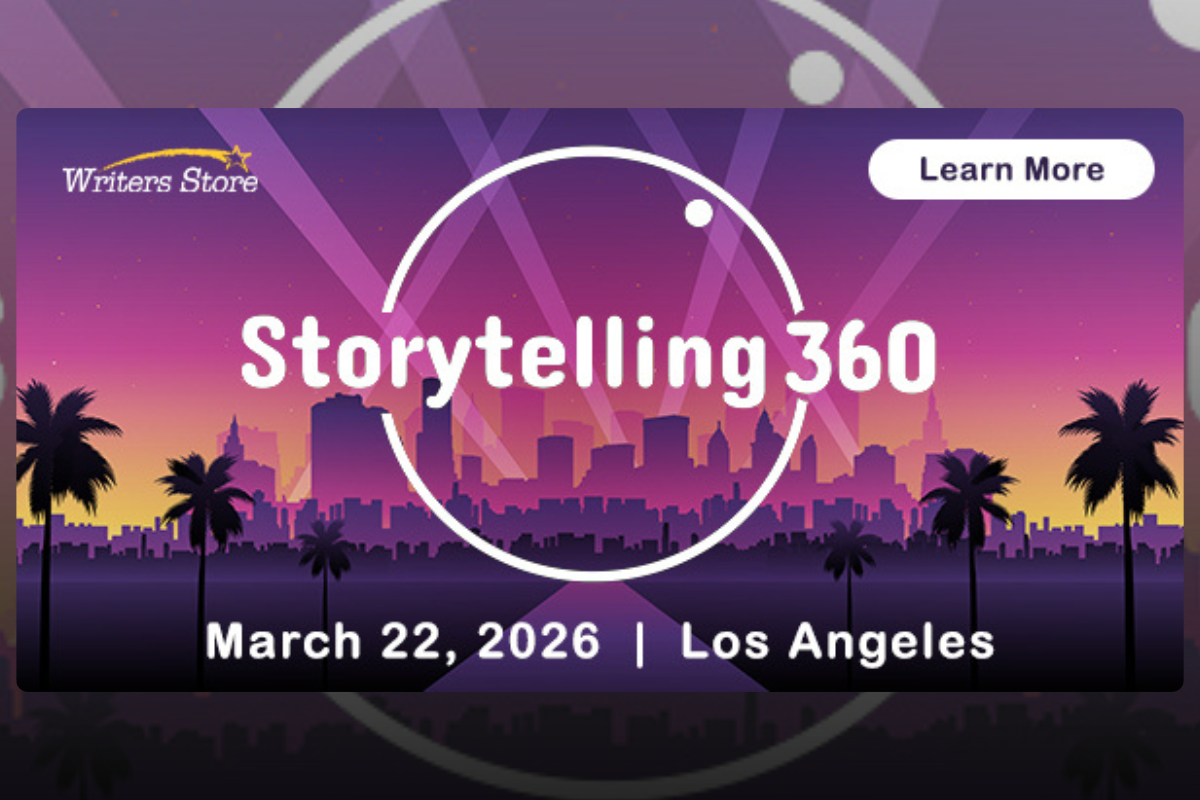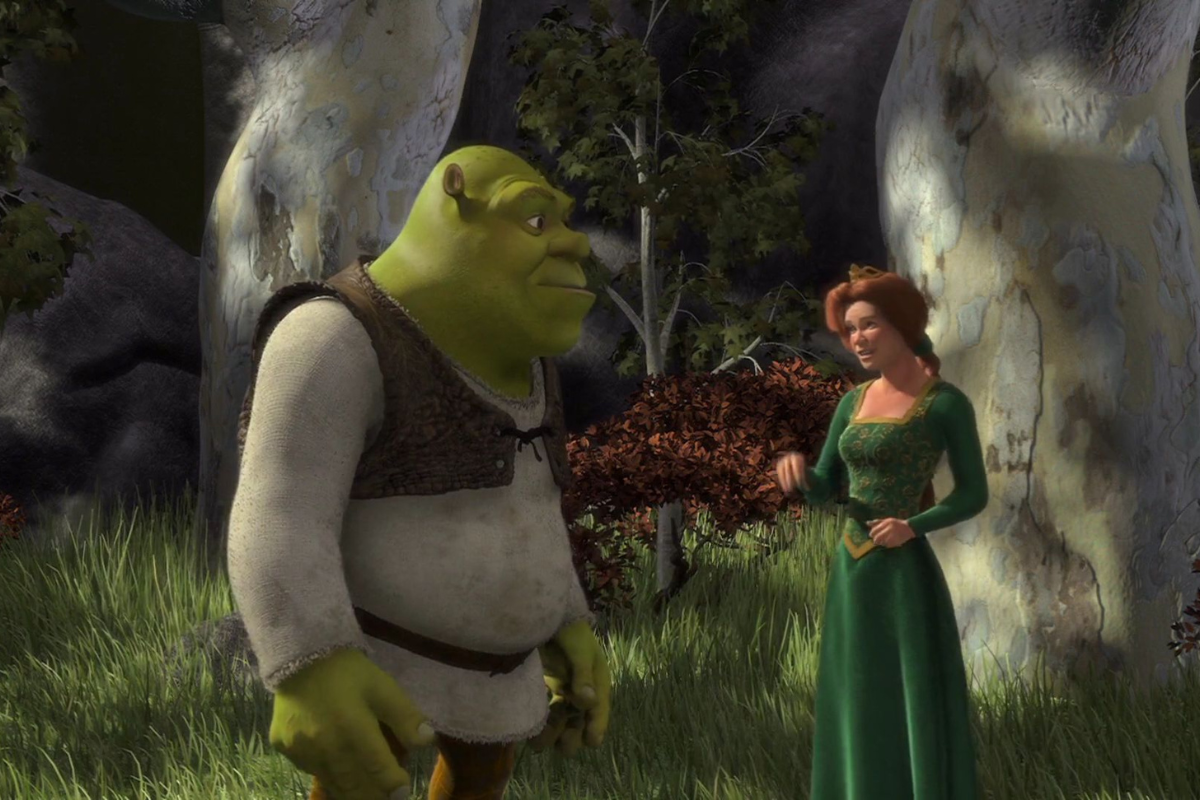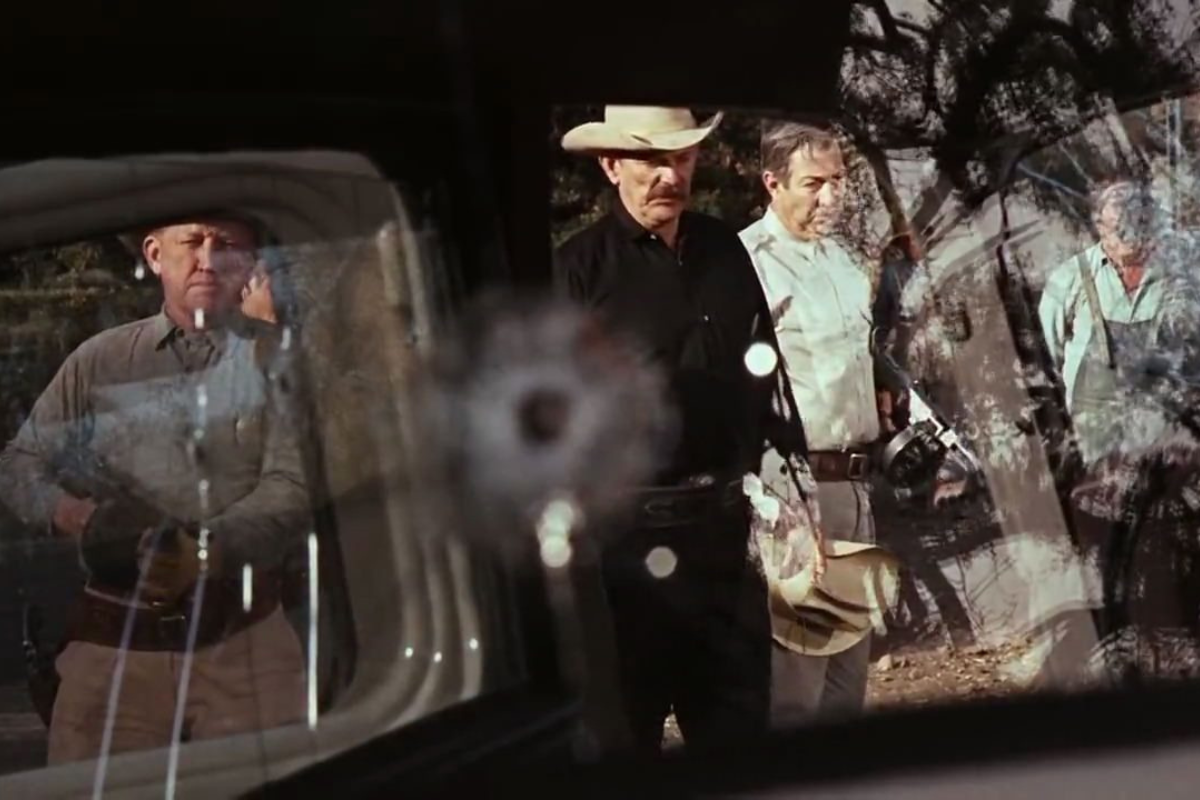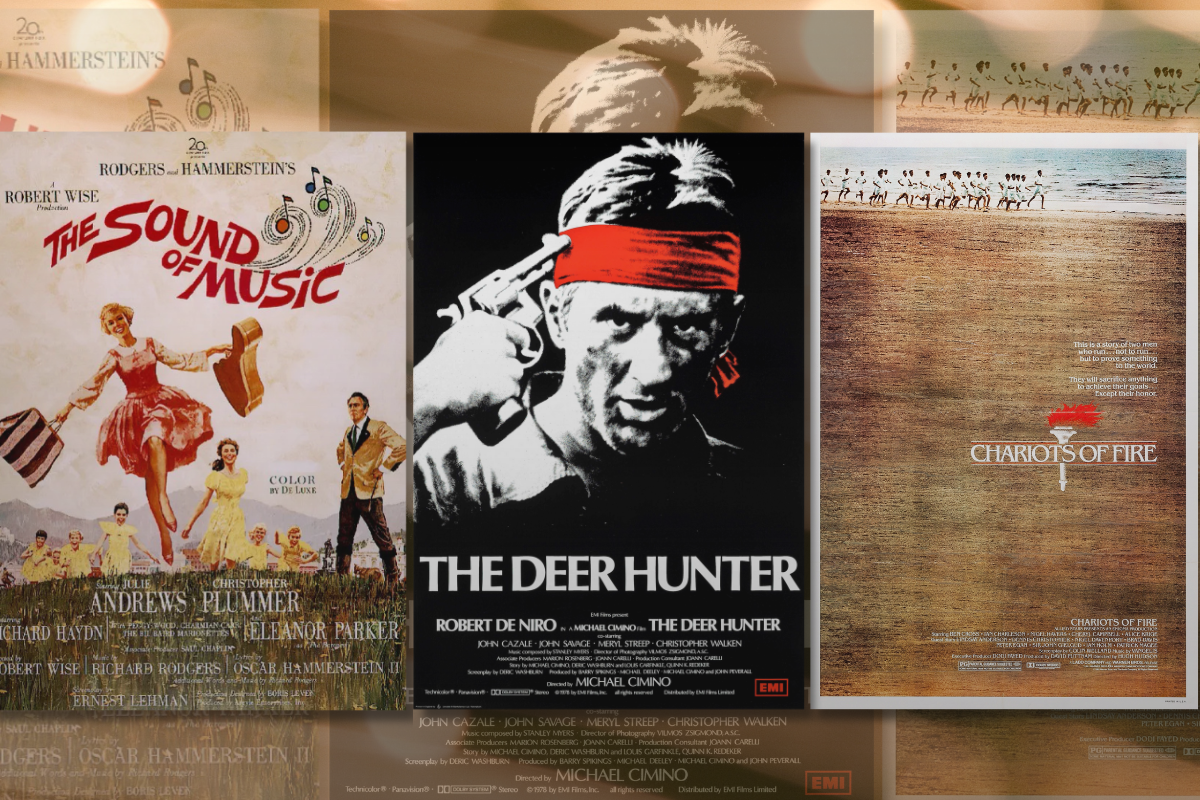Behind the Lines with DR: Director John Frankenheimer – Funny Thing About Homage
By Doug Richardson What’s wrong with this picture? I was an unproduced screenwriter standing at the threshold to my antique, valley domicile. It was my tiny, first-timer bungalow measuring barely…
By Doug Richardson
What’s wrong with this picture? I was an unproduced screenwriter standing at the threshold to my antique, valley domicile. It was my tiny, first-timer bungalow measuring barely eleven hundred square feet. Across from me, standing on my front stoop, was none other than movie director, John Frankenheimer. You don’t know his name? Maybe you’ve heard of some of his movies. The Birdman of Alcatraz, The Manchurian Candidate, Black Sunday to name just a few. At almost six foot four, the directing great filled the frame of my front door. I couldn’t help but ask myself, “What the hell is he doing here?”
But maybe I should add a little context first. Rewind six or seven months. My friend and producer (not-to-mention the War Department’s former boss), Gary Foster (Sleepless in Seattle, Ghostrider), and I had developed a kick-ass thriller written by a veteran TV scribe. We’d sold it to the studio as a pitch, developed draft upon draft of the thriller until it was so tight it squeaked, and now we were in the enviable position of the studio showing enough spark in the project to ask us to bring them a suitable director. If we found one they liked, they would make an offer. A tell-tale precursor to a green light.
Once the net had been cast for a director, the agencies kicked into gear, offering up their clients in the usual, shotgun-any-of-them-against-the-wall-and-see-if-they-stick routine. Since the film was to take place in Europe and the Middle East, we looked for somebody with that kind of flair. As we sorted through our options, Gary fielded a call from an agent who wanted us to consider his iconic client.
“What do you think of John Frankenheimer?” Gary asked me.
My mind instantly replayed scenes from his classic films. I was especially a big fan of Black Sunday, recalling a high school rainy day where I played hooky and parked myself in a movie multiplex for back to back to back showings.
“I love him,” I blurted. After the two of us babbled about him for awhile like a pair of college movie geeks, I asked, “So is he still making movies?”
“TV films,” said Gary, flat and not impressed. Not that fine work wasn’t being performed in the made for television world of cinema. But even I knew the platform was primarily the land of the C-listers. Former movie directors who couldn’t get arrested in features and TV helmers looking to bridge their way into the theatrical market.
“The great John Frankenheimer directing TV movies?” I said sadly. “That’s just wrong.”
“He read our script,” said Gary. “Agent says he loves it and wants to meet us.”
“Hell yeah,” I said. “I’m dying to meet him!”
“Even if we can’t sell him to the studio?” asked Gary. “I don’t want to waste his time.”
“Do we know for sure that the studio won’t make a deal with him?”
“Not for sure,” said Gary. “But when they said go out and get a director, I don’t think they were talking about some washed up old guy.”
“Some washed up old guy? We’re talking John Frankenheimer, man.”
“I know, I know.”
“He read it and wants to do it,” I said. “So let’s give him a chance.”
“Alright, why not,” agreed my partner. “At least this way we get to shake his hand.”
As keen as my memory is with these trench tales, I can’t at all access how we arrived at choosing to have our meeting with John Frankenheimer at my little valley casita. Especially when Gary’s Century City digs were more than comfortable and certainly more professional.
Yet there he stood. The one and only John Frankenheimer on my humble porch, offering a gargantuan hand along with a movie star smile.
“John Frankenheimer,” he introduced himself in a basement baritone, as if he needed to show some kind of ID.
We all parked in my postage-stamp of a living room and, before we buckled down to the subject of our movie, Gary and I instinctively flipped our fanboy switches. For thirty or so minutes the two of us acted like film school brats, thirsty for stories of the filmmaker’s Hollywood adventures.
Frankenheimer didn’t disappoint. He freely waxed about working with Burt Lancaster in The Birdman of Alcatraz, the politics in making both Seven Days in May and The Manchurian Candidate, and guerilla-filming much of Black Sunday’s thrilling, terrorist foot chase through the streets of Miami.
More importantly, nothing about the director appeared old, lamed, or close to washed up. He was vibrant, imbued with the kinetic energy of man who relished every second he could spend on a movie set. As far as Gary and I were concerned, the man had the job, despite not having spoken a single word about our nascent motion picture.
“John,” I added at one point in our fan fest, “I gotta talk to you about your movie The Train.”
I went on to describe the screenplay I’d co-written with my former agent Rick Jaffa and sold to Disney for big bucks (read A Million Dollar View). Our script about a sticky-fingered crew of WWII misfits on the hunt to re-steal a trainload of Nazi-looted Italian treasure featured sequences inspired by Frankenheimer’s brilliant second world war picture about the French resistance.
“Before we wrote it,” I went on to say, “We must’ve re-watched all our favorite World War Two movies. And in our third act, we have this really cool homage to The Train.”
“Homage,” grumbled Frankenheimer. “Love the French. Big fan of the country. Their wine. I used to live there, you know. But that fucking word isn’t one of their best creations.���
“Homage?” I repeated, proudly remembering my college French classes and pronouncing the word with a silent H.
“Lemme tell you something about that word ‘homage,’” continued Frankenheimer. “I ran into Steven Spielberg some time ago. He was all a twitter, excited to tell me about his ‘homage’ to The Train he stuck in that Raiders movie.”
“Raiders of the Los Ark?” clarified Gary.
“Yeah,” said Frankenheimer. “That one. So after Spielberg goes on and on about his ‘homage,’ I look him right in the eye and say and ‘Stevie? Funny thing about this French idea of homage. Back in my day? We called it ripping off a fellow director.”
“Oh my God,” I think I said.
“What did Steven say?” asked Gary.
“That was pretty much the end of the conversation,” guffawed Frankenheimer.
I must say, I was both entertained and gobsmacked at the legendary director’s retelling of his in-your-face moment with the world’s most successful moviemaker.
But having clearly crested with the Spielberg story, it was time to downshift into our well-developed screenplay that Frankenheimer wanted to direct. The tenor shift in the meeting was stark. After the grizzled helmer launched into his daring and inspiring take on our film, he quickly devolved into some rather desperate groveling. Though he didn’t exactly beg for the gig, he was clearly not beyond humbling himself to the point of making both Gary and I feel a sudden and strange discomfort. The director appeared to understand far-too-well the distance he’d descended in Moviedom’s myopic food chain. Gary and I were young and on the cusp whilst he was aging and considered by too many as a film history footnote.
The meeting ended. Hands were shaken. And we said our goodbyes. As the filmmaker ambled out my driveway and into his vintage, Italian sports car, Gary and I were already finishing each other’s sentences. Strange as the encounter had ended, we were both huge fans and intent on being part of the great John Frankenheimer’s Hollywood comeback. As much as we loved his tales, we were stoked by how underneath our movie he was. He were convinced he’d direct the daylights out of the film.
The studio, unfortunately, was not as impressed. As we met with the studio head, we were struck by witnessing one of the great showbiz clichés. The production president was so unschooled in modern cinema, he actually asked Frankenheimer what kind of experience he possessed that made him the right director for the job.
I’m not sure John Frankenheimer ever recovered from the insult.
God Bless Gary Foster. He rolled up his sleeves and ground the studio hard in defense of our choice. And though they eventually coughed up a decent offer, Frankenheimer couldn’t get past feeling slighted by the studio chief, asked for more money than they were willing to part with, and sadly, we all parted ways.
Damn.
As for our movie, it eventually got made. But that’s another story. Until then, there’s this…
Like anything, entertainment careers have cycles. Updrafts and defeats. The occasional resurgence and that slow ever-so-slow creep into irrelevancy. Frankenheimer came back briefly with a mild hit in the very excellent Ronin. I pray he relished his last moment in the Hollywood sun the way I relish the memory of his gracing my doorway.
Read Doug’s new thriller, BLOOD MONEY. Available in trade paperback and ebook at Amazon.com and Barnes and Noble.
Related Articles:
- More Behind the Lines with DR
- Behind the Lines with DR: Record Spec Script Sales - The Million Dollar View
- Behind the Lines with DR: Write What You Know
Tools to Help:
Doug Richardson cut his teeth writing movies like Die Hard, Die Harder, Bad Boys and Hostage. But scratch the surface and discover he thinks there’s a killer inside all of us. His Lucky Dey books exist between the gutter and the glitter of a morally suspect landscape he calls Luckyland—aka Los Angeles—the city of Doug’s birth and where he lives with his wife, two children, three big mutts, and the dead body he’s still semi-convinced is buried in his San Fernando Valley back yard. Follow Doug on Twitter @byDougRich.







